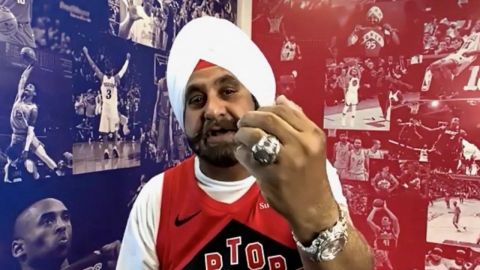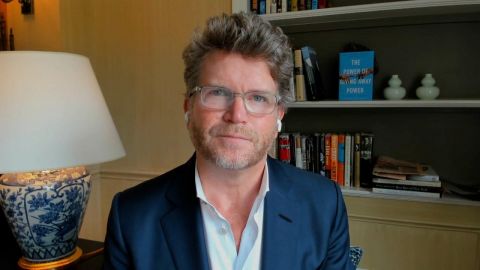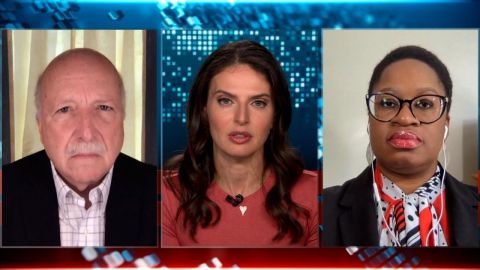Read Transcript EXPAND
SCOTT ELLSWORTH, AUTHOR, “THE GROUND BREAKING: AN AMERICAN CITY AND ITS SEARCH FOR JUSTICE”: You know, and that’s a story that — I have heard stories like that for nearly 45 years. It’s important to remember just the traumatic effect that this horrific incident had on people. There were massacre survivors I interviewed in the 1990s who were still suffering from PTSD. As late as the 1970s, there was one survivor who kept a loaded rifle by his door — quote — “in case it should happen again.”
BIANNA GOLODRYGA: This was really a showcase of the black community showing what they can do when they are given the opportunity to live together, to create wealth, to prosper. And the fact that so many in this country had not heard of not only the massacre, but also what came before it, this thriving community, I know you have spent so many years trying to dig deeper into why this wasn’t known, why this wasn’t more public. And what have you learned?
ELLSWORTH: Well, there was a very much a concerted effort in Tulsa that lasted for nearly a half-century just to bury this story. Official documents were stolen. Articles were cut out of bound volumes of old issues of Tulsa newspapers. As late as the 1970s, there were researchers who had their lives threatened, their careers threatened. And for nearly 50 years, in the white community, the massacre was just something not to be discussed, not in newspapers, not in public forums either. The irony, though, was that — Bianna, that — was in the African-American community, the massacre also wasn’t discussed in a public way. And I think the way to understand that is to think about Tulsa massacre survivors like Holocaust survivors, in that they did not want to burden their children and grandchildren with these traumatic stories. So, they simply didn’t talk about them.
GOLODRYGA: And, Keisha, I was so surprised to read about that as well. This is a subject that I, like millions of other Americans, I would assume, did not hear nearly enough about or learn enough about as we were growing up in public schools throughout the country. But, as I have been reading about this over the past several months, to hear that even descendants of those who were member and victimized there and part of that community only found out about it in bits and pieces over the past several decades suggests that there was a lot of PTSD and there was a lot of fear about perhaps this even happening again. Can you talk about that?
KEISHA N. BLAIN, UNIVERSITY OF PITTSBURGH: Yes, absolutely. This is a result of trauma, as Professor Ellsworth just pointed out. I think so many people feared what could happen if they spoke about it. They feared reprisals. They feared perhaps the violence happening yet again.
About This Episode EXPAND
Nav Bhatia became the first NBA superfan inducted into the Basketball Hall of Fame, having not missed a Toronto Raptors game since 1995.
LEARN MORE


